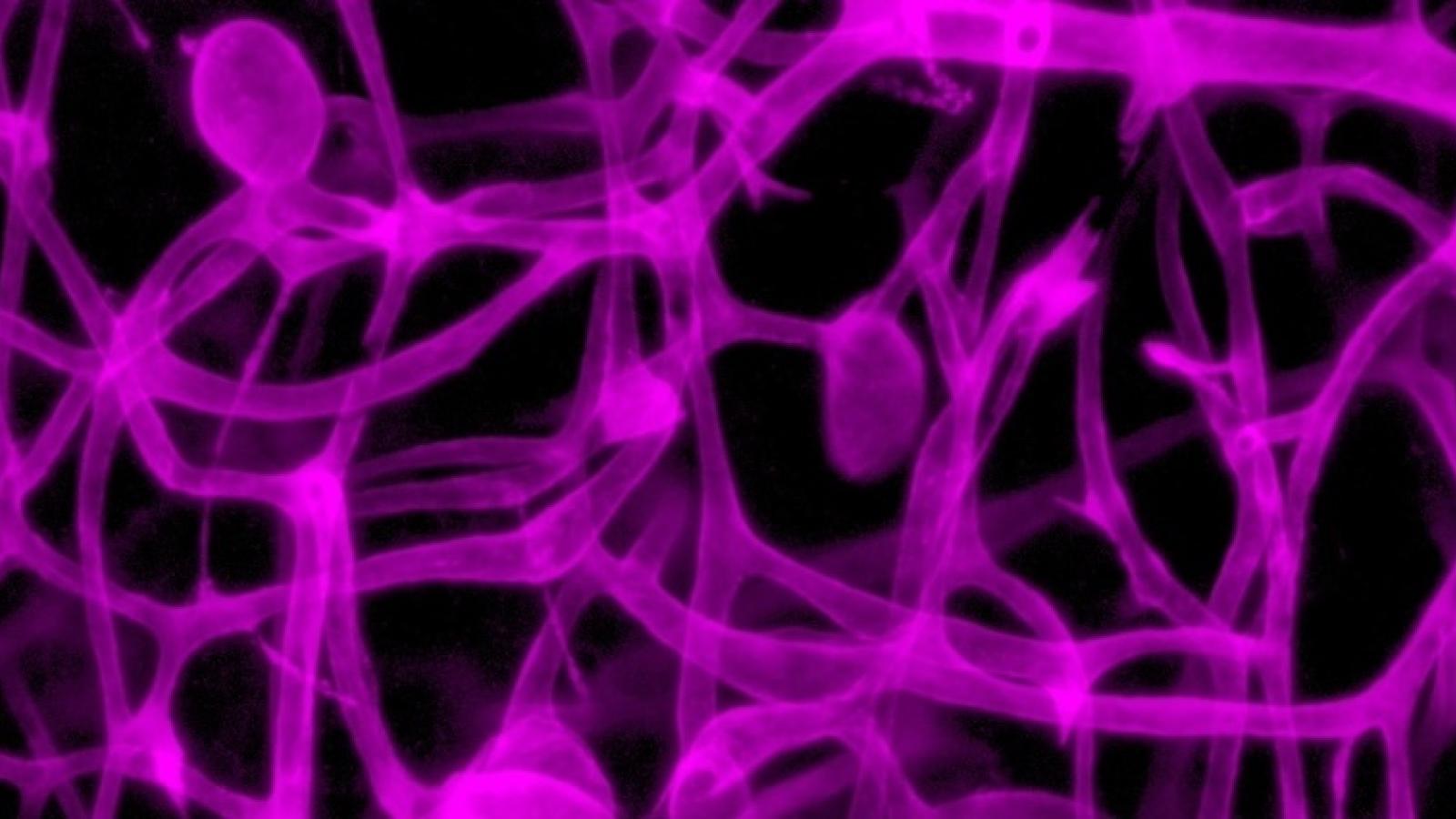A study co-led by Prof David Hunt (UK DRI at Edinburgh) and Associate Professor Markus Hofer (The University of Sydney) reveals fresh insight into the mechanisms underlying a rare disease that can cause childhood dementia. The research, published in the journal Immunity, could lead to urgently needed new therapeutic targets for the condition.
What was the challenge?
Aicardi-Goutières syndrome (AGS) is an autoinflammatory condition, and one of around 100 rare neurodegenerative genetic disorders identified as a potential cause of childhood dementia. It affects the white matter in the brain and is caused by a mutation in one or more of a small group of genes. The disease is characterised by abnormal production of interferon-alpha – a protein usually produced by the body in response to viral infections.
However, where the interferon-alpha originates from and which parts of the brain it affects are not yet known. In this study, the researchers aimed to uncover how the brain responds to increased interferon-alpha in AGS, and how this leads to brain disease.
By identifying the brain as the primary source of the harmful interferon-alpha and revealing its damaging effects on the brain's small blood vessels, we have uncovered a potential target for urgently needed treatments.Prof David HuntUK DRI at Edinburgh
What did the team do and what did they find?
Through comparing samples of cerebrospinal fluid from people with AGS to healthy controls, the researchers established that the brain itself is the source of harmful interferon-alpha in AGS. They then used a mouse model to replicate the over production of interferon-alpha, and revealed that the protein causes damage to the network of small blood vessels in the brain.
The team were able to show that removing interferon-alpha receptors from endothelial cells prevented the blood vessel damage in the brains of the mice, stopping the spread of the disease and prolonging the lifespan of the animals.
What is the impact?
These results suggest that the small blood vessels in the brain play a key role in the damage seen in AGS, making them a potential target for treatment.
Prof Hunt explained:
"Our research provides important new insights into how Aicardi-Goutières syndrome leads to brain disease in children. By identifying the brain as the primary source of the harmful interferon-alpha and revealing its damaging effects on the brain's small blood vessels, we have uncovered a potential target for urgently needed treatments. These findings bring us closer to developing therapies that could significantly improve the quality of life and outcomes for children affected by this devastating condition."
To find out more about Prof David Hunt's research, visit his UK DRI profile. To keep up to date with the latest UK DRI news and events, sign up to receive our monthly newsletter.
Article published: 14 June 2024
Banner image: Small blood vessels from mice, credit Barney Viengkhou & Markus Hofer
